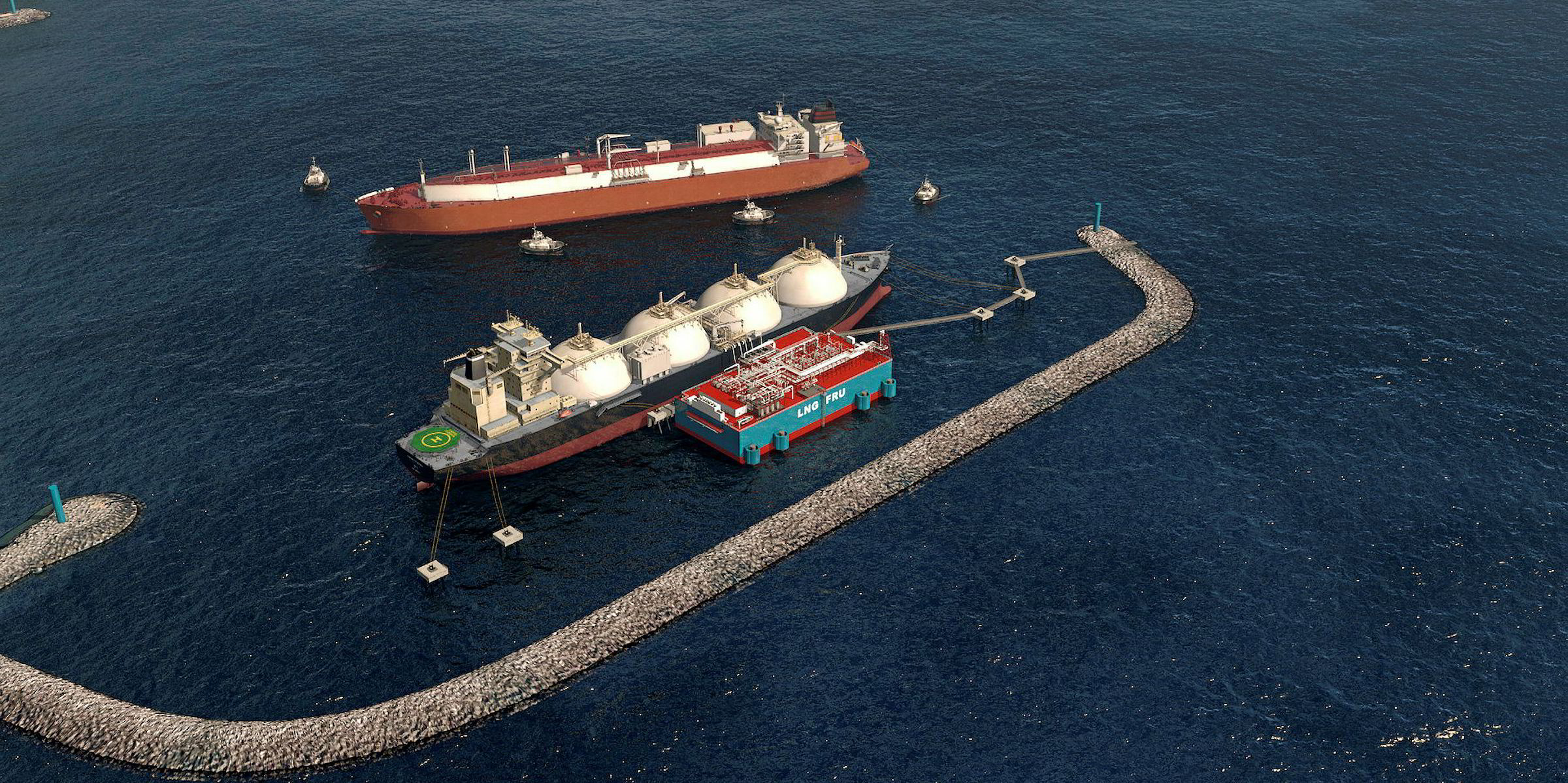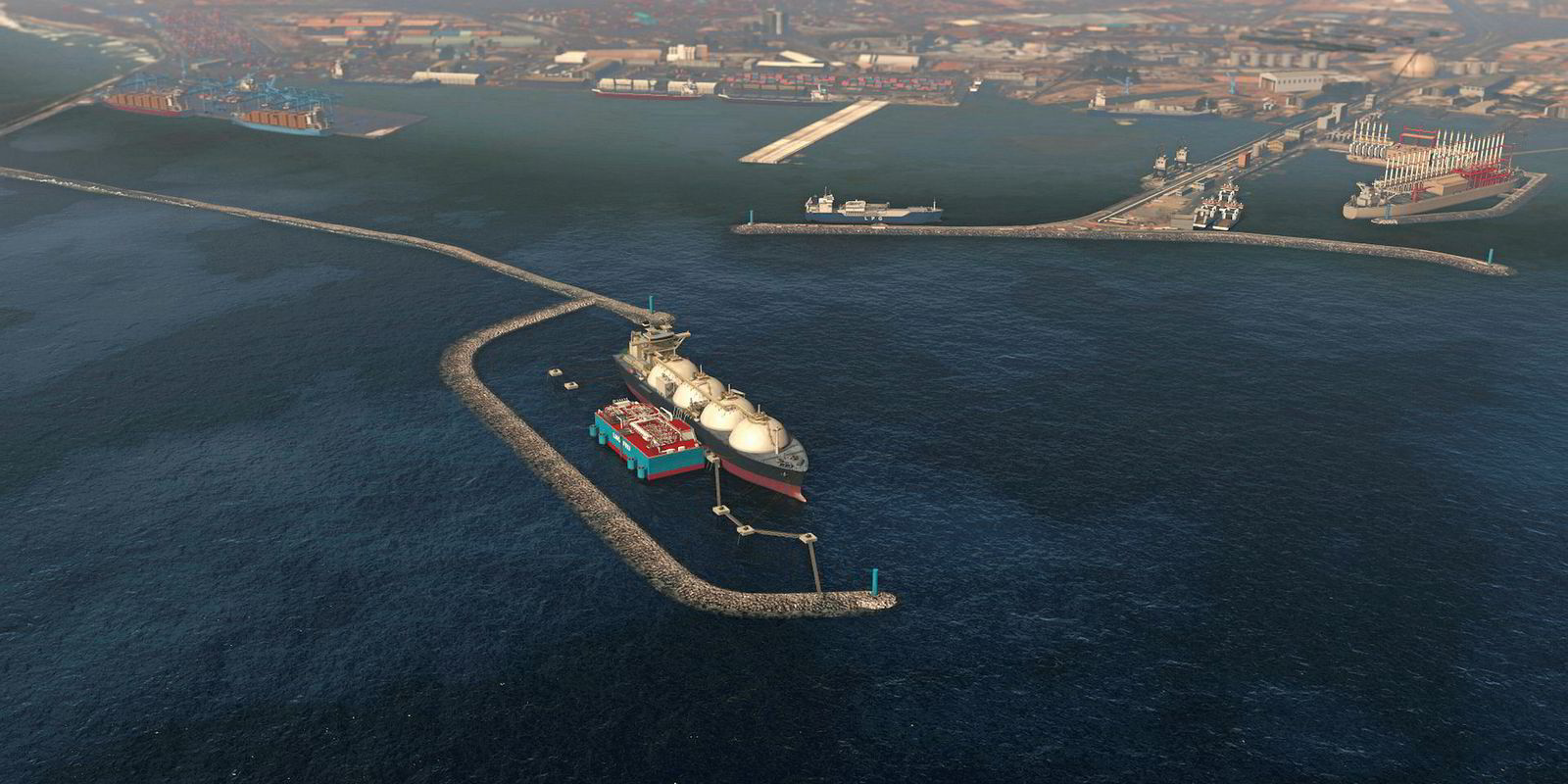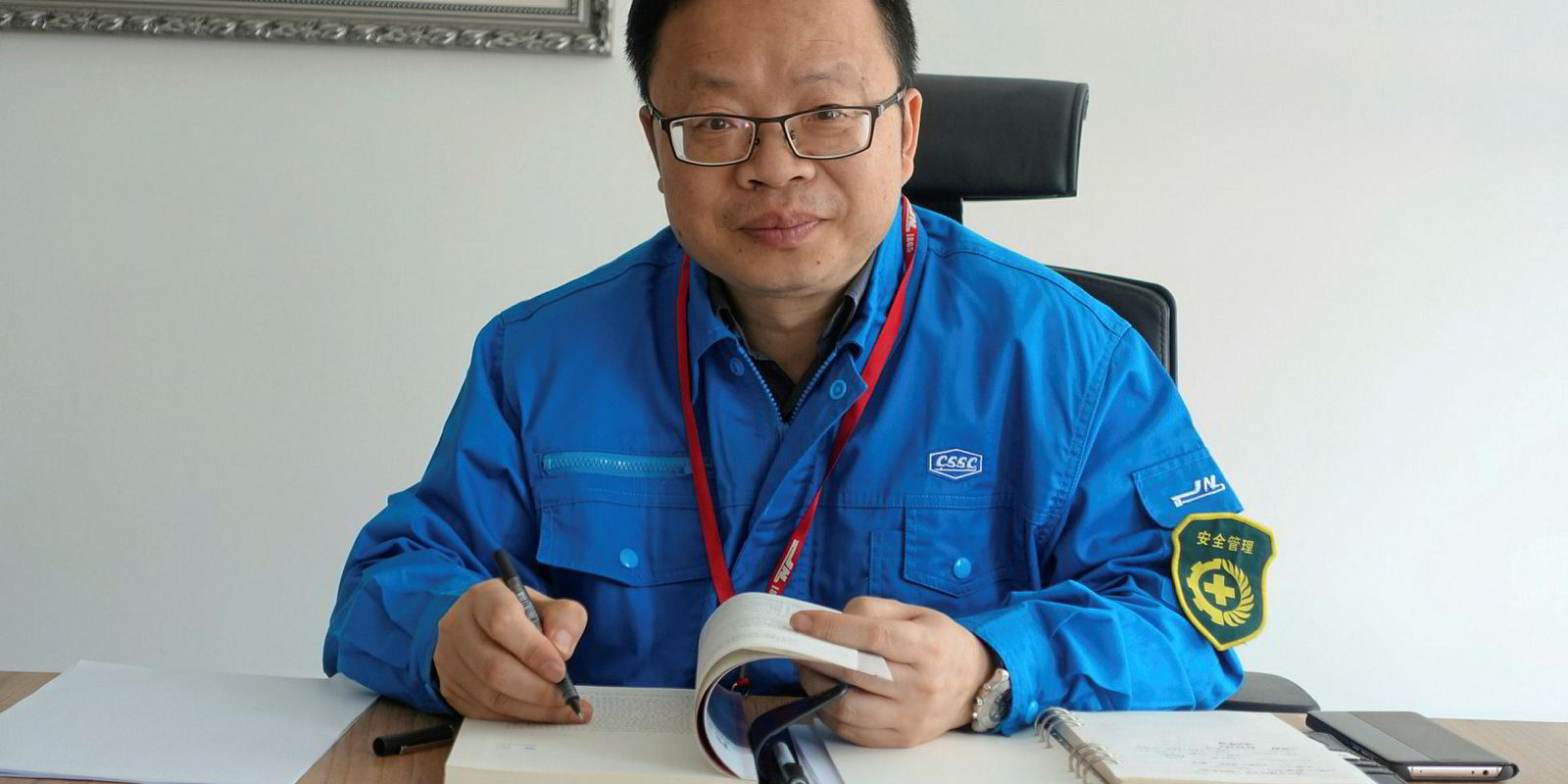An LNG carrier controlled by Japan’s NYK Line has been selected for use as a floating storage unit (FSU) in an upcoming project in Ghana.
Industry sources name the 127,705-cbm LNG Flora (built 1993) as the preferred candidate for the Helios Investment Partners project in the port of Tema, near Accra in the Gulf of Guinea.
MOL and Japanese utilities Osaka Gas and Toho Gas also have stakes in the ship.
Vessel-tracking data shows that the 25-year-old vessel, which — along with sistership LNG Vesta — was built for the trade between Indonesia and Japan, has been in lay-up in South East Asia since April.
The LNG Flora is a Moss-type vessel, making it particularly suitable as an FSU since its spherical tanks do not experience sloshing damage in cases of partial filling.
In September, it emerged that Helios’ Ghana project will use a combination of a purpose-built, 28,000-cbm floating regasification unit (FRU) in combination with an FSU to supply gas to the country.
The two units will be located behind a 750-metre breakwater to protect them from the Atlantic swells off West Africa.
At the time, infrastructure provider Gasfin Development, which is working with Helios on the Ghana job, revealed that Helios’ project vehicle, Tema LNG Terminal Co, would buy or charter an existing LNG carrier to serve as the FSU.
Gasfin indicated it was close to contracting a vessel for the storage element. It said the ship would require three to six months in dry dock before it would be ready to go on site.
Gasfin has been seeking an LNG carrier that can supply at least 127,000 cbm of storage capacity.
Cheaper solution
Combined with the FRU, which is being built by Jiangnan Shipyard, this would allow the project to offer 155,000 cbm of storage, which the partners believe is a cheaper solution than a floating storage and regasification unit.
Gasfin said last month that China Harbour Engineering has begun work on the project, and financing and permitting are in place.
The Tema project, which is the latest in a long line of efforts to secure LNG imports for Ghana, is due to be operational by the second quarter of 2020.
Russian energy company Rosneft is contracted to supply 1.7 million tonnes per year of LNG to Ghana National Petroleum Corp under a 12-year deal, after Gazprom Marketing & Trading withdrew from the project.
LNG carriers carrying these volumes will discharge into Tema’s FSU, which will feed the FRU so that regasified LNG can be sent ashore.
Gasfin declined to comment and NYK did not respond to requests for confirmation of the choice of FSU.





